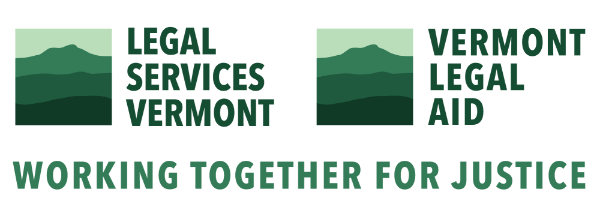Vermont Flooding
Deadlines
- As soon as possible, contact your insurance company and make a claim. FEMA will want to know what your insurance does not cover.
- Apply for FEMA assistance.
Steps to take after a disaster
You will need to submit requests (called “claims”) to the insurance company right away. A claim asks the company to help you pay to repair damage to your home or replace damaged items. Most insurance companies have procedures and time limits that you must follow to file a claim after a disaster. If you cannot find your insurance company or agent’s information, contact National Association of Insurance Commissioners (NAIC) by calling 1-866-470-6242 or by going to the NAIC website.
What if I don’t have flood coverage?
If you have insurance, you should file a claim — even if your policy doesn’t cover floods and even if you think you will be denied. FEMA may be able to cover some of what your insurance does not cover. FEMA will need to see the reply or settlement from your insurance company.
The best practice is to file an insurance claim and apply to FEMA at the same time. If you get partial insurance coverage, FEMA may be able to help make up the rest.
Step 1: Document the damage
Write a list and describe everything that was damaged. Describe the item, how much it cost, and where you got it. Take photos and videos. Collect any receipts showing what you paid for the damaged items. Get estimates for the cost of repairs as soon as you can.
Step 2: Safely store your damaged property
Don’t throw it away right away! Your insurance company may need to take a look. They will decide how much it costs to fix or be replaced. Ask them before you get rid of ruined things.
Step 3: Prevent further damage
Make temporary repairs for safety reasons or to prevent more damage. Be sure to take pictures before and after you repair. Keep all your receipts so you have a record of what you’ve spent on repair for the insurance company.
Step 4: File your insurance claims as soon as possible
Contact your insurance agent and file your claim. Send your agent copies of photos and receipts. Keep copies of all the information you submit to your insurance company for your claim. This will help you if you want to dispute the amount of money the insurance company gives you. Delays in filing could cause the insurance company to deny your claim. Delays also might affect whether you can get other forms of assistance, such as FEMA aid. FEMA requires you to file a claim with your insurance company before they will give financial help to you and your household.
Step 5: Follow the steps explained in your insurance policy
If you lost your policy documents in the flood, ask your insurance agent for copies when you file your claim. If you have an insurance broker (a local company where you bought the insurance), include them in any communications.
Step 6: Prepare for the insurance adjuster
An insurance adjuster is an expert the insurance company sends to your home to look at what has been damaged and how bad the damage is. Check the adjuster’s identification to avoid scammers. Be ready with your list of damaged items, purchase dates, receipts, and cost estimates for repair or replacement. Take notes on what the adjuster does and doesn’t look at when in your home. If your insurance company delays in responding to your claim, call the claims department to find out if an adjuster has been assigned.
Step 7: Keep good records
Maintain records of all your communications with the insurance company. Include the date, time, who you talked to, and what you discussed.
Step 8: Be willing to challenge an insurance company’s decision
The insurance company will write a settlement based on your claim and the survey done by the adjuster. If you disagree with any terms on the settlement, do not sign it. You don’t have to accept the insurance company’s decision. The company might decide not to pay for certain repairs or give you an amount of money that doesn’t cover your costs.
Ask your local insurance broker for help to send or resend information to the insurance company if you think their decision was wrong.
Step 9: Also apply for help from FEMA
If the insurance company doesn’t give you enough money to cover all the costs — or any money — you may be eligible for federal aid. This aid is only available if the president declares a major disaster for your community. (Several Vermont counties were declared a major disaster in July 2023 and July 2024.) Learn more about applying to FEMA.
Insurance information from the state
The Vermont Department of Financial Regulation (DFR) has published information about insurance and the flooding, including this FAQ.
DFR also sent a memo to insurance companies with some guidance and requests. This includes:
- reminding insurers of their duty to provide proper investigations and prompt responses to insurance claims
- encourages insurers to provide prompt and immediate relief to policyholders affected by the disaster, including the temporary suspension of premium payments and suspension of vacancy provisions for those temporarily displaced (not forgiveness of the premium payments, but encourages an extended grace period for the payment of the premium)
- stating the department’s position that it is not appropriate for insurers to re-rate, cancel, nonrenew or refuse to provide insurance coverage solely due to an individual’s status as a victim or evacuee of this disaster.
- stating the department’s position that it is not reasonable to change policyholders’ rating classifications or raise their rates solely because they are a victim or evacuee of this disaster
Insurance problems
If you have a complaint about an insurance company, you can contact the Vermont Department of Financial Regulation (DFR).
- Phone: Call DFR’s consumer hotline at 1-800-964-1784. Their staff will talk with you about the complaint and help you file a formal complaint.
- Online, fax or mail: File your complaint online or print out a complaint form to fax or mail. DFR offers a consumer portal so you can file your complaint.
If you applied to FEMA
If your insurance settlement is delayed more than 30 days from the time you file your claim, call the FEMA Helpline at 1-800-621-3362.
Portions of this text come from the Legal Aid Disaster Resource Center website, which is funded by the Legal Services Corporation.
Also on VTLawHelp.org
- Legal and benefits issues after a disaster like flooding
- Vermont renter / tenant FAQs after a disaster
- Applying for financial help and services from FEMA + appealing their decisions
- Grants for very-low-income homeowners from USDA RD
- SBA disaster loans for homeowners and renters
- Disaster Unemployment Assistance
- Tax relief after a disaster
- Mortgages and property taxes after a disaster

